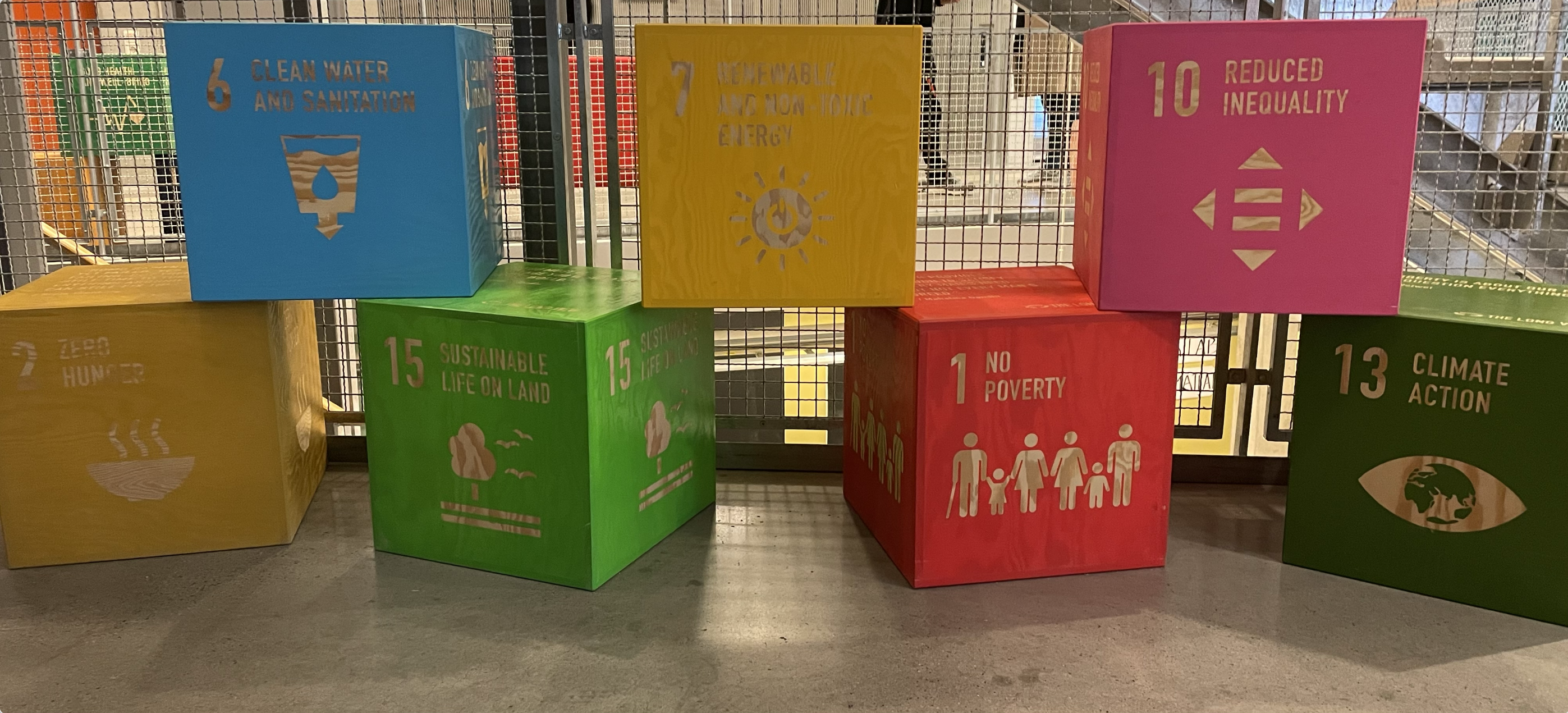
Teaching sustainability: Reading about how to turn frustration into action
One reoccurring topic in all discussions around how to teach sustainability is how we can turn frustration into constructive action. I haven’t found a comprehensive answer, but I’ve been reading!
Almers (2013) looked at narratives of life stories of three young Swedish activists to distil which circumstances led them to not only reduce their own ecological footprint, but step up and become active in society. For this, they clearly had to develop “action competence” — the ability to take responsible action, even based on incomplete information. But how did that happen Almers finds six themes in the histories:
- “Emotions creating a desire to change conditions”: Both negative emotions like frustration about the state of things, and hopefulness in view of role models, play an important role
- “A core of values and contrasting perspectives”: Growing up within a community that has strong shared values, but that also deals with conflicting perspectives by discussing them critically and ultimately requiring commitment to a standpoint, thus training figuring out, and arguing for, their own position
- “Action permeation”: Being exposed to role models that became active to fight some kind of injustice, and being able to transfer the role model’s approach to a different subject, or modify it to fit another purpose
- “Feeling competent and confident with what one can contribute”: Actions, no matter how small, feel meaningful if there is reason to believe that they are making a difference
- “Trust and faith from and in adults”: Being given freedom to make their own decisions while being nudged to think about reasons for and consequences of those decisions
- “Outsidership and belongingness”: Feeling like an outsider in school, but then finding community, shared values and goals, belonging in activists group
In their article, Almers (2013) is very clear that they don’t want to give recommendations for teaching based on their findings. But some things nevertheless stick out to me, like for example using a “language of possibility”, pointing out the positive space to make changes rather than just critiquing what is; or modelling how to deal constructively with conflicting perspectives (team teaching!) or how to take one strategy and adapt it for a different purpose.
Almers (2013) refer to another article that might shed light on the “teaching” aspect, though: Schusler & Krasny (2010) describe how educators can facilitate environmental actions with young people in ways that lead to their intellectual, personal, and social development. It seems reasonable to assume that participants’ growth can be transferred outside of the context of summer camps, too, but that is not explored in the article, nor is how young people could be recruited to even participate in the growth opportunities in the first place.
But another article that I found interesting is Stanley et al. (2021). They look at three negative emotions regarding climate change, and how those lead to (in)action: Depression is not likely to lead to action, whereas anxiety leads to flight in avoidance of negative outcomes, and anger to fight, i.e. targeted action to change the outcomes. Especially experiencing unfairness seems to work to provoke anger in groups, which then leads to collective, rather than just individual, action. Stanely et al. (2021) point out that it is important to look at all three emotions individually, because the overlap and the strong effect of anger can mask the deactivating effects of depression and anxiety. So teaching in a way that makes people angry about climate change, rather than depressed or anxious, can lead to behaviour change that have positive effects both on the climate and on individual mental health. How exactly do we do that? You tell me…
Almers, E. (2013). Pathways to action competence for sustainability—Six themes. The Journal of Environmental Education, 44(2), 116-127.
Schusler, T. M., & Krasny, M. E. (2010). Environmental action as context for youth development. The Journal of Environmental Education, 41(4), 208-223.
Stanley, S. K., Hogg, T. L., Leviston, Z., & Walker, I. (2021). From anger to action: Differential impacts of eco-anxiety, eco-depression, and eco-anger on climate action and wellbeing. The Journal of Climate Change and Health, 1, 100003.
Our seminar today: "Serious Games in Teaching for Sustainability" - Adventures in Oceanography and Teaching says:
[…] least if not overshadowed by depression. Read blog posts summarizing literature on that here and here). Many students actually also report hope and a feeling of community, because they found […]
Thinking about emotions and teaching about sustainability - Adventures in Oceanography and Teaching says:
[…] into action. Paint the doom-and-gloom (i.e. realistic) picture so people will act out of fear (and I just recently wrote about how anger can be a constructive emotion leading to action), or draw more positive pictures so they feel hopeful and that they can make a difference, and […]
Breathing practice: Where freediving and academic development collide - Adventures in Oceanography and Teaching says:
[…] thinking about sustainability and the challenges that we face when we take it seriously (e.g. here), and of course experiencing negative emotions like feeling anxious or hopeless or angry is not […]